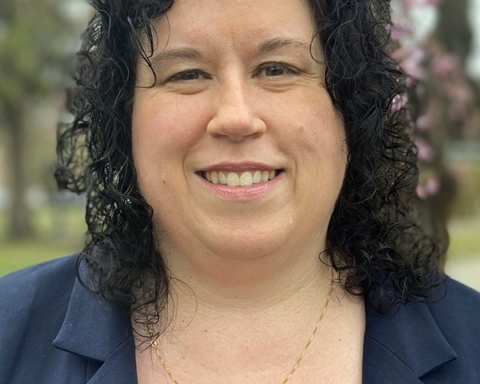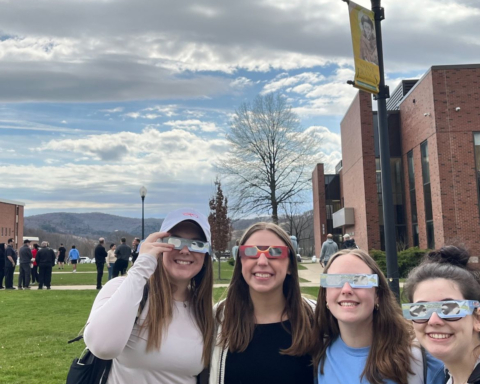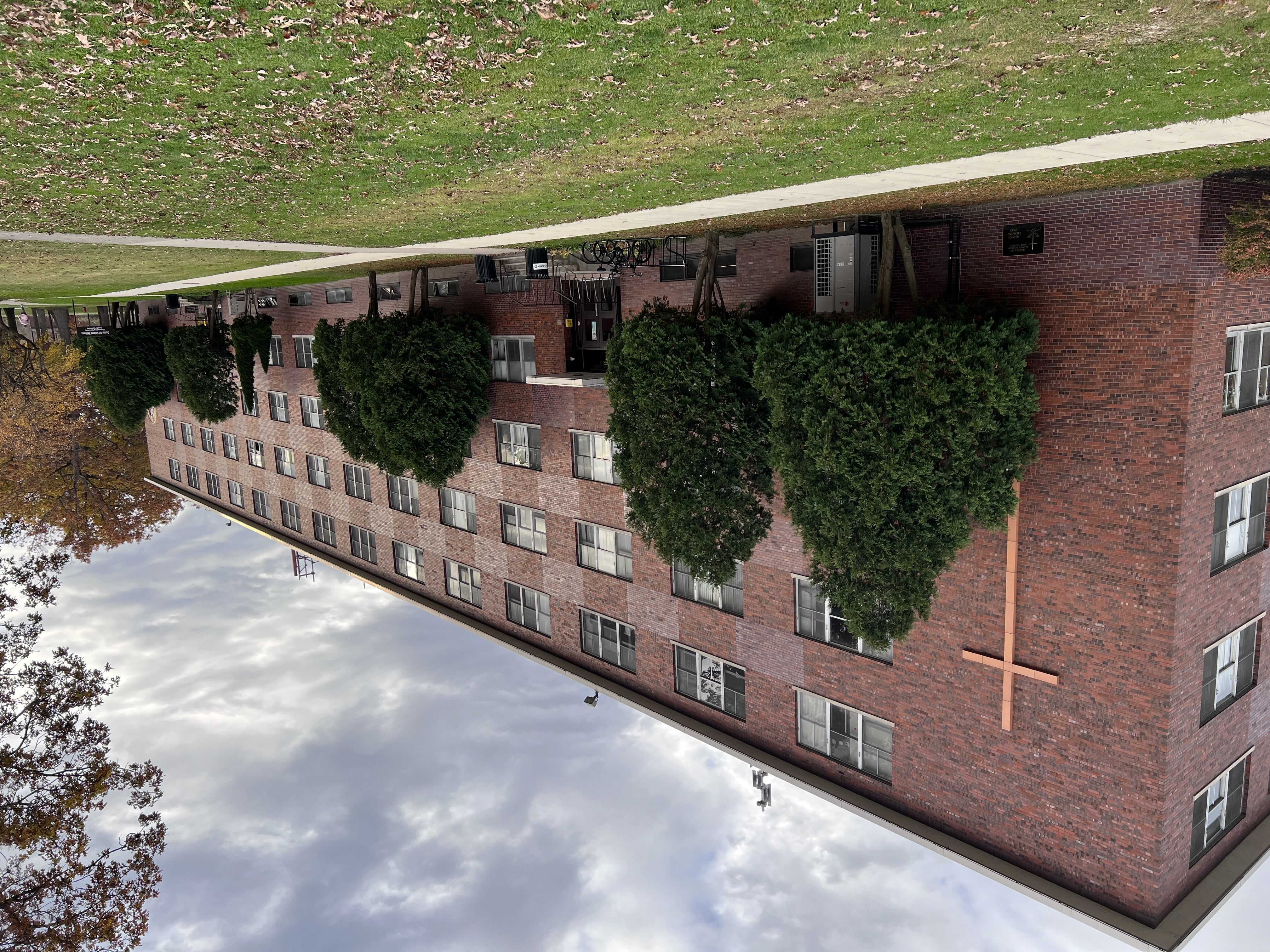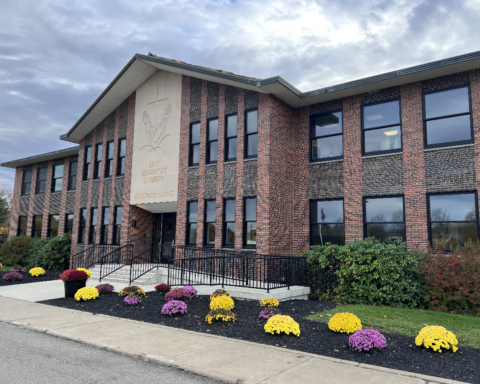The Student Government Association (SGA) runoff election for executive board president and vice president is the result of one word in the SGA constitution: “majority.”
Part of Article VIII, Section 2 of the constitution reads: “The (Executive Board) President, Vice President, Secretary and Treasurer shall be chosen in the spring election by a majority vote of the student body…” While this seems clear-cut enough, the wording posed an issue in this year’s election, where three groups of students ran for the Executive Board president and vice president spots.
The word “majority” means that a candidate must win 50 percent plus one of the votes in order to win the election. In this year’s election, the candidates split the votes, with no one winning a clear majority.
J.W. Cook and his running mate Jessica Laursen, initially deemed the winners of the election, won 41 percent of the vote. Anneliese Quinlan and Gabby Slavny won 30 percent, while Noah Burton, who ran without a running mate, won 29 percent, according to Rick Trietley, vice president of student affairs and an advisor for SGA.
The error in the constitutional reading was discovered by one of the candidates: Burton.
“There are two terms, ‘majority vote’ and ‘plurality’ that are in the constitution,” Burton said. “Now, plurality is you have to receive more votes than anyone else… a majority vote is you must receive 50 percent plus one vote. The constitution says (majority) for the election of executive officers,” meaning the results of the election, where the highest vote winning candidate got 41 percent, were invalid.
Judicial board members and Trietley discussed how to address the problem, and decided to hold a meeting on Monday with all the candidates, as well as Danette Brickman, Ph.D., a political science professor and SGA advisor; and Michael Padlo, a member of the election committee.
“The challenge with how the constitution was written is that there’s no process or procedures to rectify what had occurred,” Trietley said.
Trietley explained that the judicial branch and election committee dissolved on March 31, with two new committees to be brought in with a new president. Since the presidential election was deemed invalid, no new or old judicial committee or election committee could rectify the issue of the majority vote.
“At that point, in my role as vice president for student affairs, which oversees the student body and SGA, and in my role as official advisor to SGA, I really had no alternative but to use my administrative executive authority to put a solution in place,” he explained.
He said he called the Monday meeting in order to hear the candidates’ feedback on what to do to rectify the problem.
“The reality is, the only way to fix an invalid election is to host a valid election, which means we had to have another election,” Trietley said.
He said he was “adamant” that a runoff election was essential, and that eventually the candidates all agreed the best way to maintain the credibility of the SGA constitution was to obey its every word — including the word “majority.”
According to Quinlan, she and Slavny initially agreed to concede the election to Cook and Laursen on two conditions: that SGA release a joint statement that the results were invalid and that the election committee made a mistake. She said Cook and Laursen agreed to the conditions, and were ready to sign off on their win, but Burton refused. When Trietley offered the option for a runoff, Burton said he would pull out.
“All the candidates had to agree on something, which made it a little tough,” Burton said. He would not sign the paper. “Early on, I decided that if Anneliese (Quinlan) and J.W. (Cook) decided to run against each other, I would pull out.”
He explained that he felt it was important for SGA to follow the constitution, and that he felt that if he decided to participate in the runoff, it would be unlikely that an actual “majority” would be achieved, so he withdrew from the election so either Cook and Laursen or Quinlan and Slavny could achieve a true majority.
“Since I received third place, (withdrawing) was the only thing that made sense,” he said.
Quinlan said she and Slavny initially didn’t think it was worthwhile to pursue a runoff election.
“They had already announced a winner, and we were ready to move forward,” Quinlan said.
She said Trietley asked each group how they felt they should proceed with the election. Burton said he felt a runoff election would be best; Cook and Laursen said they felt not having an election would be best; and she and Slavny were “on the fence.”
“We didn’t want to have another election,” Quinlan said. “We didn’t want to tell J.W. (Cook) to have to tell everyone that even though we already said (Cook and Laursen won), they actually didn’t. We didn’t want to go through all this trouble, basically, and make SGA look bad.”
She said the constitutional issue could have been avoided with a more thorough reading of the constitution, however, “At some point we have to move forward.”
Cook agreed.
“We were very apprehensive at first, as was Anneliese (Quinlan), but we understand why we had to do this,” he said. He noted that it is imperative that SGA follows the constitution it spent all year revising.
“I’ll just come right out and say it, SGA has never paid attention to their constitution, and this year, everything we’ve done has been constitutional… We have to abide by this (decision) now,” he said.
Brickman said the issue is “not a problem of the candidates’ creation at all.”
“The candidates were in no way responsible for this. Many of them had been involved with the recent amendments to the constitution, they had worked for hours on this very detailed document, that unfortunately there are still some problems with,” she said.
She explained that, following the realization of the “majority” issue, she contacted the executive board president from 2008, Curtis Middlebrooks, who created Article VIII, Section 2.
“I (asked him), ‘Explain to me why would you have set it up this way?’ and he said, ‘You’ve got more than one person that wants to be in office?’” she said. She went on to say that, in the past, there was very little interest in SGA, so the people who initially created the constitution had not anticipated a three-group election.
Brickman explained the runoff election will take place on Monday from 9 a.m. to 7 p.m. in the lobby of the Reilly Center (RC). She said candidates will be allowed to campaign outside the RC, but not inside. She also said there will be poll watchers, appointed by candidates to make sure nothing untoward occurs. Ballots will be placed in a locked box, which will be opened by Trietley at the end of the voting process, with candidates present. She added that students who will be absent Monday for school-sponsored events will be able to cast absentee ballots on Friday from 10:30 a.m. to 1:30 p.m. in her office, Plassmann C1.
“The (absentee ballots) will be put in a sealed envelope and locked in my desk,” she said.
Padlo added that the election committee will ensure no one casts more than one vote by asking voters to sign off next to their name on a printed list of all students in the school.
The class of 2019 vote was also invalidated thanks to a plurality issue, so freshman will also have the opportunity to recast votes for their candidates on Monday in the RC.
All involved parties agreed that, while the situation isn’t ideal, they are handling it as best as they can.
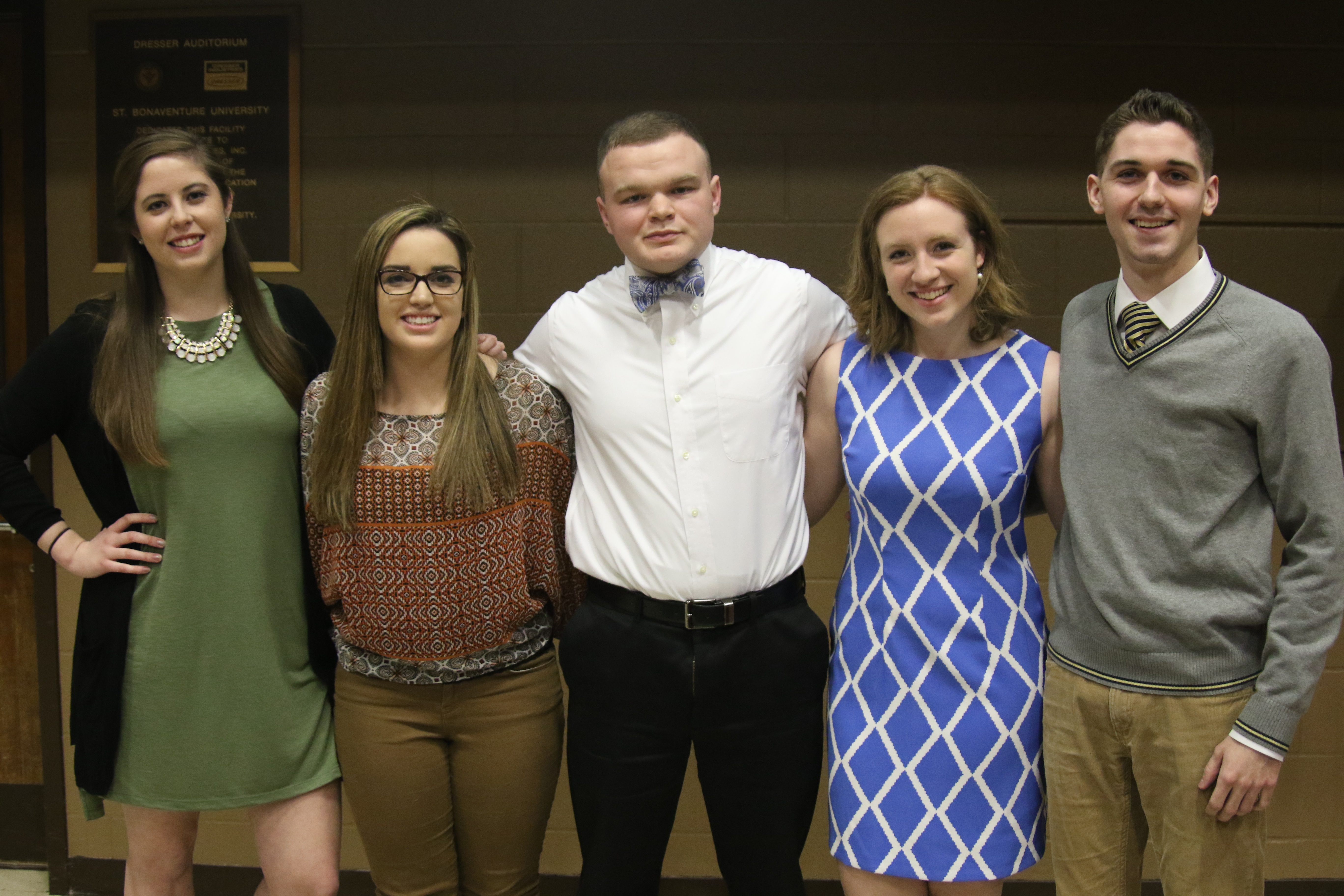 “(SGA) is really getting into important issues now, and they’re really operating like a political institution now. It’s good, but there’s going to be growing pains,” Trietley said. “This is an example of growing pains. Mistakes are going to be made, but, heck, mistakes get made at the national level. The one thing I would say is that at least our students behave better than people at the national level.”
“(SGA) is really getting into important issues now, and they’re really operating like a political institution now. It’s good, but there’s going to be growing pains,” Trietley said. “This is an example of growing pains. Mistakes are going to be made, but, heck, mistakes get made at the national level. The one thing I would say is that at least our students behave better than people at the national level.”
mcelfrdh14@bonaventure.edu

